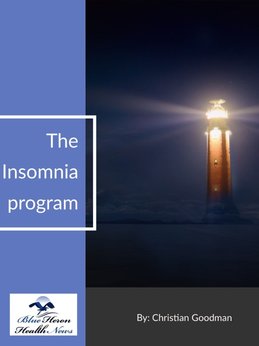
The Insomnia Program™ By Christian Goodman This program has been created by Christian Goodman, a natural health expert and sufferer of insomnia. He has used an audio program to let your fall sleep with the help of a bit of a hypnotic effect on your body.
How does insomnia progress over time?
Progression of Insomnia Over Time
Insomnia can evolve from a transient issue to a chronic disorder, significantly impacting a person’s quality of life. The progression of insomnia is influenced by various factors, including psychological, physiological, and environmental elements. Here is a detailed exploration of how insomnia progresses over time, supported by insights from multiple sources.
1. Initial Onset (Acute Insomnia)
Triggering Factors:
- Acute insomnia often begins with a specific trigger, such as a stressful event, illness, or significant life change. Common triggers include job loss, relationship issues, or a traumatic event.
- Environmental factors like noise, light, or an uncomfortable sleeping environment can also initiate acute insomnia.
Symptoms and Duration:
- Individuals may experience difficulty falling asleep, staying asleep, or waking up too early.
- Acute insomnia typically lasts for a few days to a few weeks and often resolves once the triggering factor is removed or managed (AJMC) (Health.mil).
2. Transition to Subacute Insomnia
Prolonged Stress and Habituation:
- If the initial stressor persists or if new stressors arise, insomnia can transition into a subacute phase. This phase is characterized by sleep disturbances lasting from a few weeks to three months.
- During this period, individuals may begin to develop maladaptive sleep behaviors, such as going to bed earlier to compensate for lost sleep or staying in bed longer, which can perpetuate sleep difficulties.
Cognitive and Behavioral Factors:
- Anxiety about sleep and the anticipation of sleepless nights can start to play a significant role. This can lead to increased cognitive arousal at bedtime, making it harder to fall asleep.
- Behavioral changes, such as increased caffeine consumption or irregular sleep schedules, can exacerbate sleep problems (Health.mil) (Helsestart – Startsiden for helse).
3. Chronic Insomnia
Establishment of Chronic Patterns:
- Insomnia is considered chronic when sleep difficulties occur at least three times per week for three months or longer.
- Chronic insomnia often involves a complex interplay of psychological, behavioral, and physiological factors.
Perpetuating Factors:
- Persistent stress and anxiety continue to play a significant role. The fear of not being able to sleep can become a self-fulfilling prophecy, where worry about sleep itself causes continued sleep disruption.
- Chronic medical conditions (such as chronic pain, asthma, or gastrointestinal issues) and mental health disorders (such as depression and anxiety) can perpetuate insomnia.
- Lifestyle factors, such as excessive screen time before bed, poor sleep hygiene, and irregular sleep patterns, further entrench sleep problems (Helsestart – Startsiden for helse) (AJMC).
Impact on Health and Functioning:
- Chronic insomnia leads to significant daytime impairments, including fatigue, irritability, and cognitive dysfunction.
- Long-term sleep deprivation is associated with increased risks of cardiovascular diseases, diabetes, obesity, and weakened immune function.
- Mental health is severely impacted, with a higher likelihood of developing mood disorders such as depression and anxiety (Health.mil) (Helsestart – Startsiden for helse).
4. Compounding Effects and Escalation
Physical Health Consequences:
- The cumulative effects of chronic insomnia can lead to serious health conditions. For example, chronic sleep deprivation is linked to increased inflammation, hypertension, and metabolic disorders.
- The body’s ability to repair and rejuvenate itself is compromised, leading to accelerated aging and increased vulnerability to diseases (AJMC) (Health.mil).
Psychological and Cognitive Decline:
- Persistent lack of sleep can lead to cognitive decline, affecting memory, attention, and executive functions. This decline can impact professional performance and personal relationships.
- Chronic insomnia is also associated with increased risks of developing dementia and other neurodegenerative diseases (Health.mil) (Helsestart – Startsiden for helse).
Social and Occupational Impacts:
- The ongoing effects of insomnia can strain social relationships and reduce the quality of life. Individuals may withdraw from social activities due to fatigue and irritability.
- Occupational performance suffers, with increased absenteeism and presenteeism (being present at work but not productive). This can lead to job loss or decreased career advancement opportunities (Helsestart – Startsiden for helse) (AJMC).
Conclusion
The progression of insomnia from an acute to a chronic condition involves a complex interplay of triggering, perpetuating, and compounding factors. Acute insomnia often starts with a specific stressor or environmental change and can resolve once the trigger is addressed. However, if sleep disturbances persist, they can evolve into subacute and eventually chronic insomnia, characterized by significant cognitive, psychological, and physical health impacts.
Chronic insomnia requires a multifaceted treatment approach, including cognitive-behavioral therapy for insomnia (CBT-I), lifestyle modifications, and sometimes medication to manage symptoms and address underlying causes. Understanding the progression of insomnia is crucial for early intervention and effective management to prevent long-term adverse effects on health and daily functioning.
References
- National Institutes of Health (NIH): Insomnia
- National Sleep Foundation: What Is Insomnia?
- American Academy of Sleep Medicine: Insomnia Overview
- Harvard Medical School: The Impact of Sleep Deprivation on Physical and Mental Health

The Insomnia Program™ By Christian Goodman This program has been created by Christian Goodman, a natural health expert and sufferer of insomnia. He has used an audio program to let your fall sleep with the help of a bit of a hypnotic effect on your body.